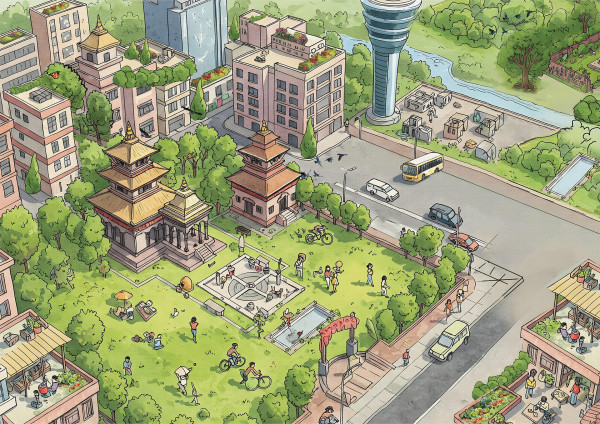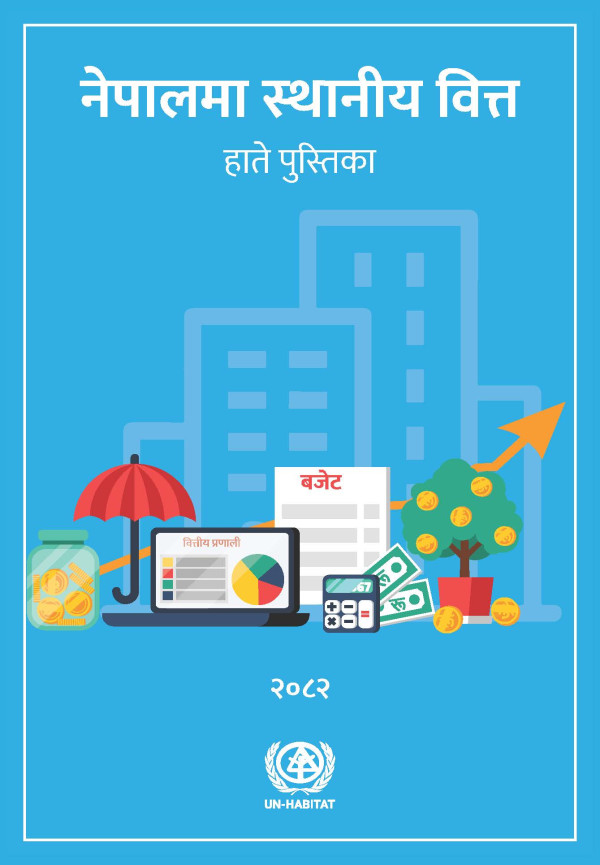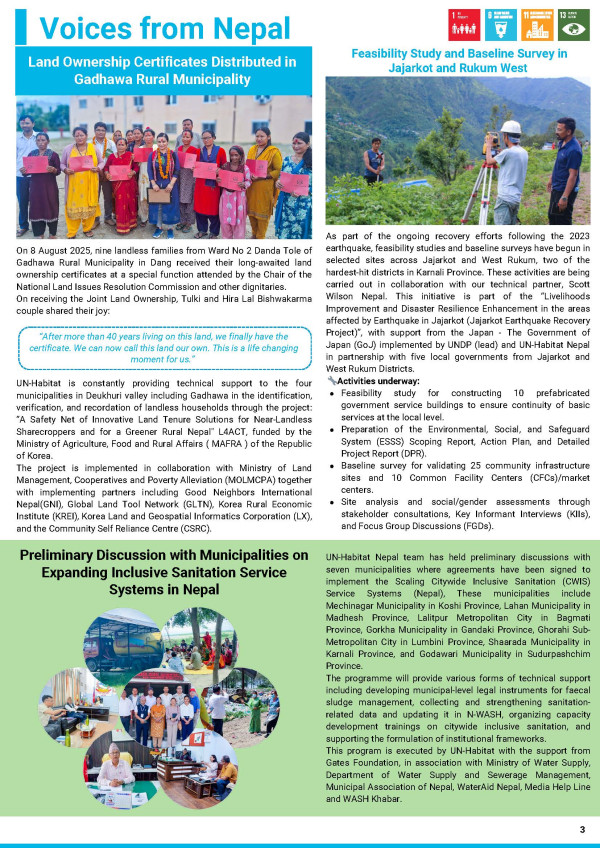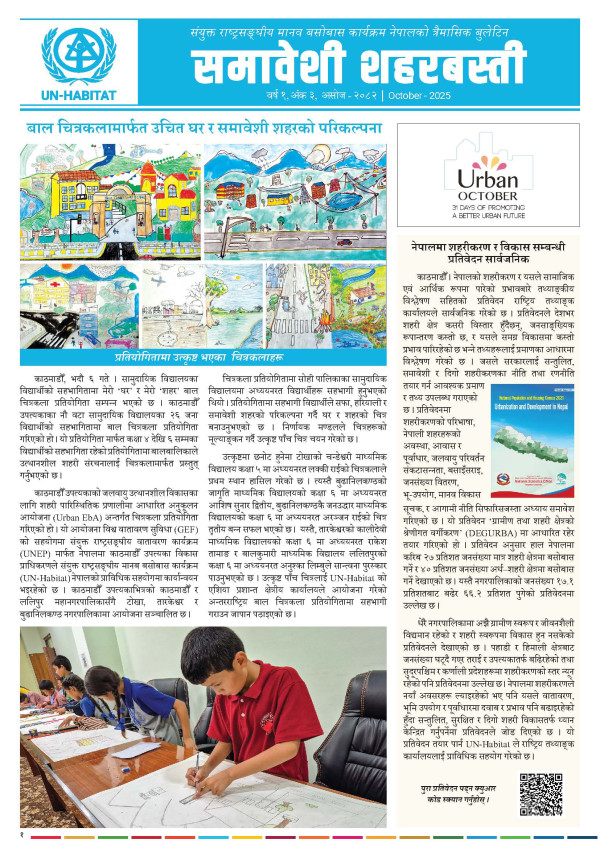Driving Local Climate Solutions: Youth Workshop in Lalitpur
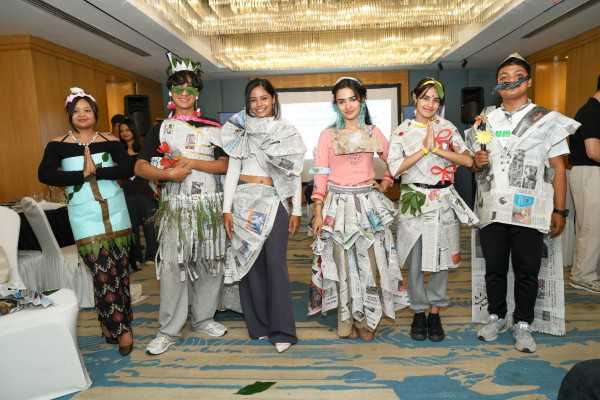
Kathmandu, 10 October 2025
UN-Habitat Nepal organized a two-day workshop on “Youth Engagement in Climate Action through the Localization of the Sustainable Development Goals” on 9–10 October 2025 in Pulchowk, Lalitpur. Convened under the project “Accelerating Localization of Integrated Climate Action in Nepal”, funded by the SDG Joint Fund and implemented jointly by WFP, UNDP, and UN-Habitat, the event brought together 53 participants (including 28 women and 26 youth aged 18–30) representing universities, civil society, and municipal and development partners.
The workshop aimed to strengthen youth capacities for
locally driven climate action and to create a co-learning platform for youth
engagement in municipal governance and SDG localization. Participants included
youth individual youth climate advocates, and from CSOs, NGOs, students,
development agencies (CIUD, Lumanti, CleanUp Nepal, Chay-Ya Nepal, Institute of
Engineering, Kathmandu University, ICIMOD).
Over two days, a blend of technical sessions, interactive
design-thinking exercises, motivational talks, and physical wellbeing
activities fostered interactive learning and collaboration. Opening sessions
assessed participants’ familiarity with the SDGs and local climate risks. They
also identified priority local concerns — air pollution, waste management,
water scarcity, flooding, and deforestation — as entry points for youth action.
Presentations from UN-Habitat, Kathmandu Valley Development Authority (KVDA) /
UNEP, and partner organizations highlighted urban climate vulnerabilities,
nature-based solutions, green construction techniques, and community-led waste
management as practical pathways to resilience.
The Human-Centred Fore sighting Design workshop, facilitated
by Utopia, guided youth through inspiration, ideation, and prototyping.
Reflective tools such as the Sailboat exercise and creative tasks, including a
newspaper fashion challenge, enabled participants to transform local problems
into concrete “How might we…” opportunities. Major themes discussed included
circular economy and waste management, eco-friendly practices, youth education
and awareness, data-driven accountability, and policy and partnership
mechanisms.
During the prototyping phase, participants developed
storyboards to illustrate tangible solutions such as community water-reuse
systems, a youth counselling and information hub to address climate anxiety,
digital citizen-government dialogue platforms, and biodegradable alternatives
to small plastics.
Sessions on Prevention of Sexual Exploitation, Abuse, and
Harassment (PSEAH), UN Volunteer opportunities, and motivational talks from
youth leaders and sports professionals complemented the technical agenda and
underscored the importance of wellbeing, ethics, and long-term engagement and
importance of youth networking for materializing agenda.
A post-event survey showed high satisfaction: 16 rated the
event excellent, and all respondents expressed confidence in the potential of
youth to influence local climate initiatives. Participants called for more
frequent, inclusive, and field-based learning and greater youth representation
in municipal decision-making.
The workshop concluded with a shared commitment to translate
ideas into community-level climate solutions. UN-Habitat will continue to
support youth engagement, promote design-thinking approaches, and strengthen
partnerships with municipalities, academia, and civil society to scale locally
led, youth-driven climate action.


